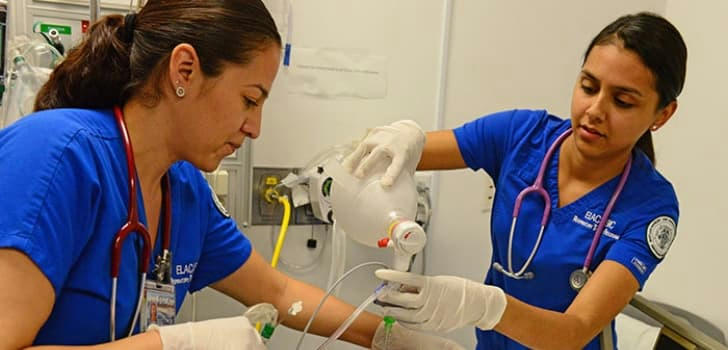A comprehensive guide to RN programs: from study to practice
Becoming a registered nurse (RN) is a career goal pursued by many people who aspire to work in the healthcare industry. Registered nurses are an integral part of the healthcare system, responsible for direct patient care, educating patients and family members, coordinating care plans, and playing an important role in the healthcare team.
Registered nurses have broad career development space, good salary and benefits, and high social status, so a large number of students and professionals choose to join the nursing industry every year. So, how to become a registered nurse? This article will introduce in detail the types of RN courses, learning content, career paths, and future development prospects.

🏥 What is a registered nurse (RN)?
A registered nurse (RN) is a professional nurse who has passed the registration exam (NCLEX-RN) of the State Board of Nursing and obtained a nursing license. RNs can work in a variety of healthcare settings, including:
• Hospitals
• Clinics
• Nursing facilities
• Schools
• Community health organizations
• Military
As direct-to-patient healthcare professionals, RNs are responsible for:
Assessing and monitoring patient health
Administering medications and treatments
Coordinating care plans
Working with physicians and other healthcare professionals
Providing health education and counseling

🏥 Registered Nurse Course Content
The registered nurse (RN) course content mainly includes theoretical learning and clinical practice, aiming to help students master the necessary medical knowledge and nursing skills so that they can be competent for various nursing jobs after passing the National Registered Nurse License Examination (NCLEX-RN). The following is the detailed content classification and specific learning content of the RN course:
🏫 1. Core theory courses
• Anatomy and physiology
• Pharmacology
• Microbiology and infection control
• Pathology
• Nursing fundamentals
• Adult health care
• Pediatric nursing
• Obstetrics and gynecology nursing
• Mental health nursing
• Emergency and critical care nursing
• Nurse-patient communication and interpersonal relationships
• Nursing ethics and law
🏥 2. Clinical practice course

🌍 Industry Demand
The aging population and the increase in chronic diseases in the United States have led to an increasing demand for nursing staff:
📌 It is estimated that by 2030, there will be approximately 276,800 new RN positions in the United States
📌 The demand is mainly concentrated in:
• Intensive Care Unit (ICU)
• Emergency Care
• Obstetric and Pediatric Care
• Mental Health Care
🥇 Career Development Opportunities
Through further study and certification, RNs can obtain career advancement in the following directions:
• Advanced Practice Nurse (APRN)
• Clinical Nurse Specialist (CNS)
• Nurse Manager
• Nurse Educator
Summary: Registered nurses are a high-reward career choice
Becoming a registered nurse (RN) requires a complete education and examination process, but once successful, you will get:
• Stable and generous salary
• Extensive career development space
• Meaningful sense of career achievement
Whether through the ADN, Diploma or BSN path, becoming a registered nurse will open an important door to the healthcare industry for you. If you are passionate about the nursing industry, start planning your nursing learning journey now! 🌟
